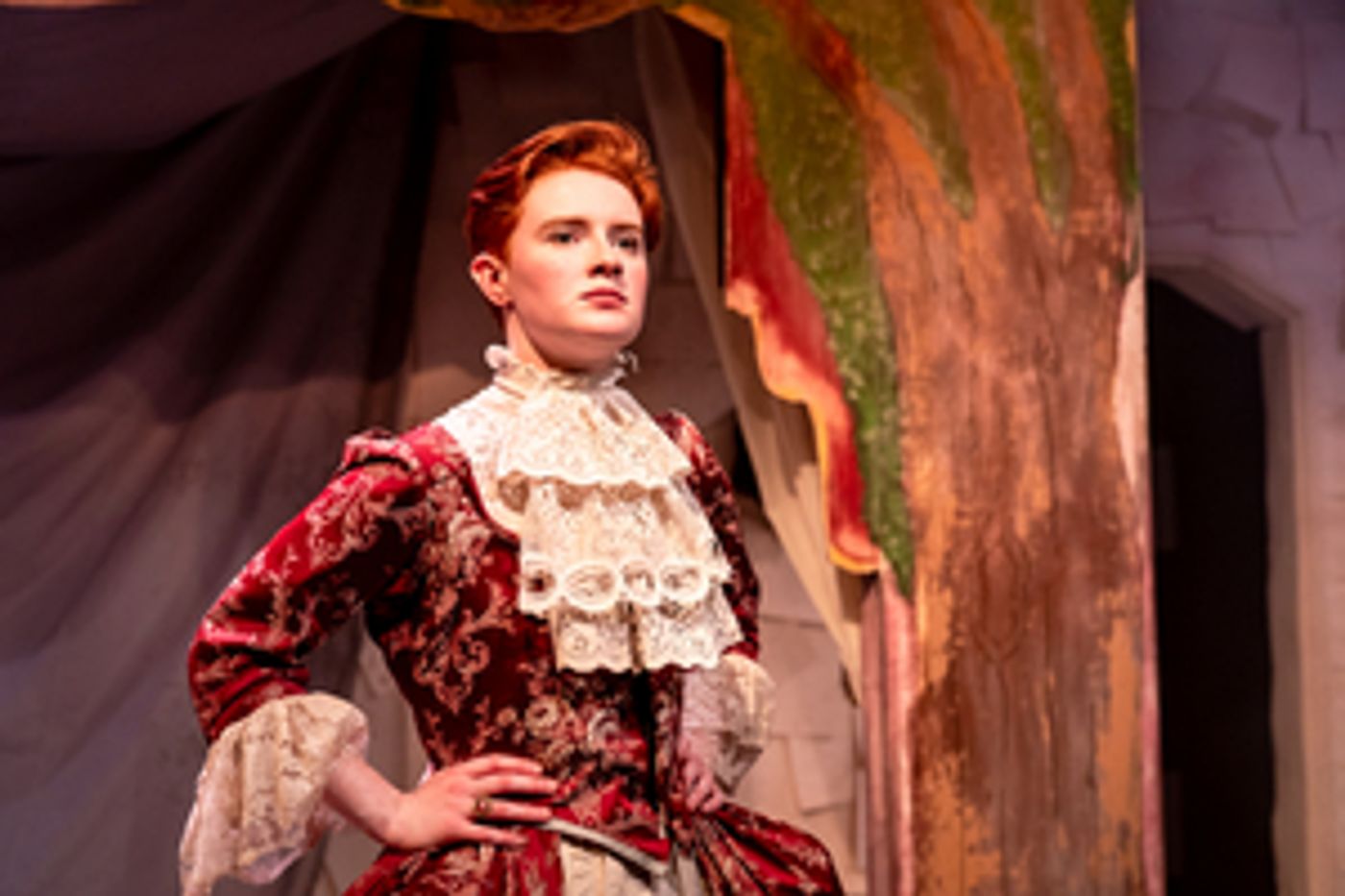Review: ORLANDO, Jermyn Street Theatre
Stella Powell-Jones directs the London premiere of Sarah Ruhl's adaptation of Orlando, Virginia Woolf's feminist novel that defies gender.

![]() "He who robs us of our dreams robs us of our life" writes Virginia Woolf in her novel Orlando: A Biography. The fictional life of her gender non-conforming hero has been hailed as a feminist masterpiece, a subversive classic, and an impressive love letter.
"He who robs us of our dreams robs us of our life" writes Virginia Woolf in her novel Orlando: A Biography. The fictional life of her gender non-conforming hero has been hailed as a feminist masterpiece, a subversive classic, and an impressive love letter.
Inspired by Vita Sackville-West'sturbulent family, Orlando depicts a sexually ambiguous protagonist whose adventures span five centuries and two genders. It's also the eternal legacy of Woolf and Vita's romance.
While it's not the first piece of literature that features a sex change - Shakespeare loved a good gender-bending plot-line and One Thousand and One Nights plays with the element quite a bit - it's Woolf's awareness of gender expectations and sheer defiance of them that makes Orlando outright sensational.
Tilda Swinton famously took on the role in the 1992 film directed by Sally Potter and Miranda Richardson was the titular character in Edinburgh four years later. Now, Stella Powell-Jones directs Sarath Ruhl's 2010 adaptation at Jermyn Street Theatre.
We follow Taylor McClaine's Orlando through exotic lands; born a boy who skates on the frozen waters of the Thames, he suddenly wakes up a woman at 30. "Different sex, same person" they comment, a diametrical stance from the "There could be no doubt of his sex" opening.
Powell-Jones's Orlando buzzes with energy and pure fairy-tale storytelling. It's imaginative, entertaining, and brimming with talent. She builds Woolf's world on a proscenium designed by Ceci Calf. Blank sheets of paper plaster the walls while an arch made of painted cardboard adds a childlike make-believe quality to the tale.
Taylor McClaine is a sophisticated Orlando. They're delicately effervescent as they run through time and, while naïve in their feelings at the start, they grow a haunted look that reveals acute humanity. Romantic disappointment, ephemeral relationship, and the inadvertent sex change take their toll, and Orlando tugs at the chains of society.
A subtle but sharp critique of heteronormativity and gender specificity surfaces. While nobody bats an eye at Orlando's sumptuous dress, they now need to practice inflection and cadence to mimic a woman's. Boredom takes over as running around is an activity for boys, and tea with the archduke becomes a happy farce.
The fragmentation and compartmentalisation of Orlando's life is echoed by a chorus. Tigger Blaize, Rosalind Lailey, and Stanton Wright become narrators and ever-changing companions. With very few objects as props and armed with Powell-Jones's imagination, they chase after one other to finish each other's sentences and visually build Orlando's realm.
From Elizabethan ruffs to stylish turn-of-the-century trousers, Emily Stuart dresses the company with peculiar charm. High-top trainers coexist alongside billowy Victorian shirts and justaucorps, and every character is colour-coded in warm tones except for Sasha.
Played by Skye Hallam, she represents Orlando's first big blow. Hallam towers over McClaine, dressed in a dark ensemble, projecting a colossal personality and an irresistible pull.
It's an exquisite take on Ruhl's text and on Woolf's universe too. Powell-Jones transports her audience to a liminal space between childhood fantasy and theatrical wonder.
Orlando runs at Jermyn Street Theatre until 28 May.
Photo credit: Steve Gregson
Reader Reviews
Videos

